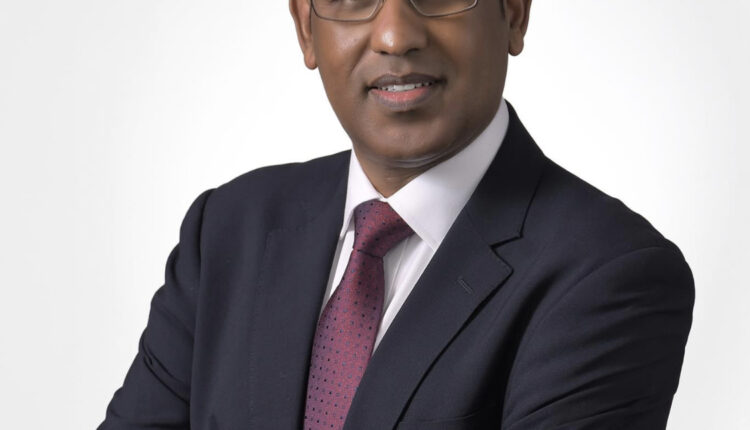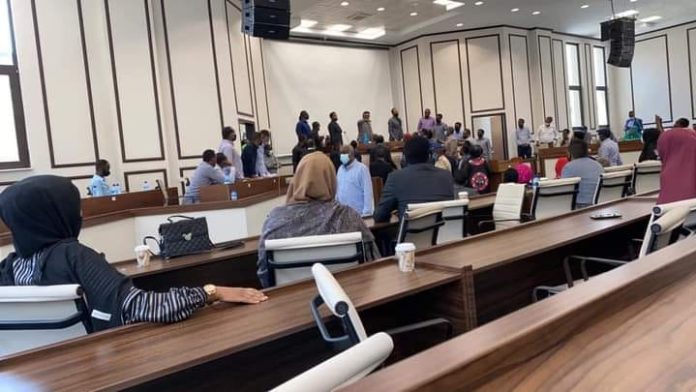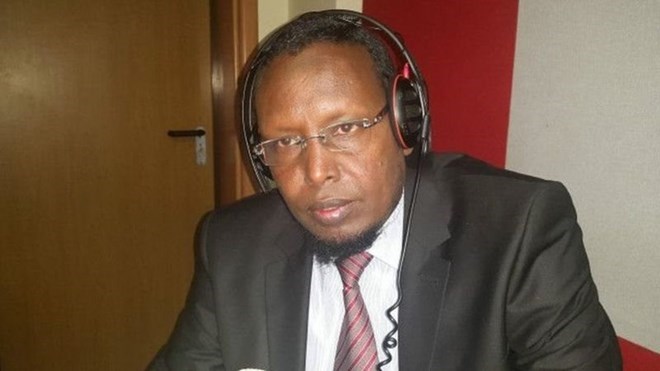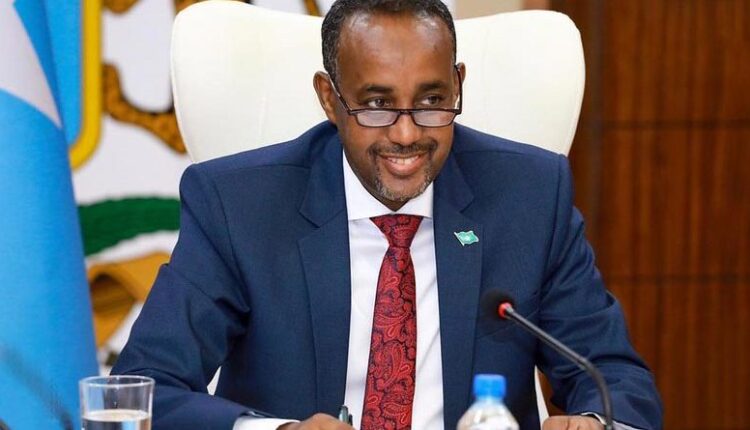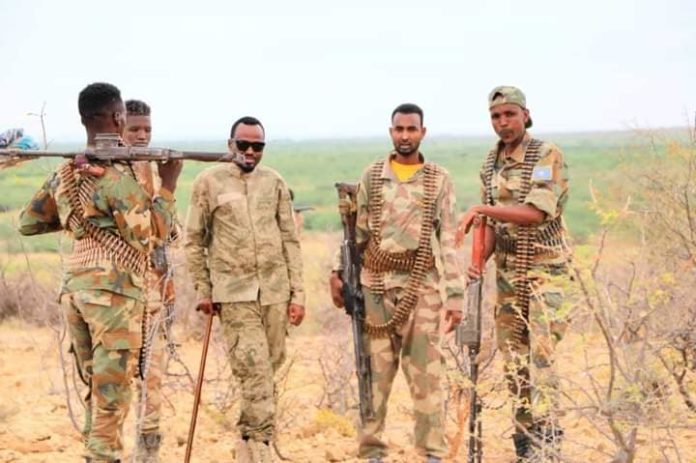Nashville Somalis worry how to get money back home
An international banking struggle has hit home for Nashville’s large Somali refugee community, raising concerns here about family members still living in Somalia and African refugee camps.
Families and businesses in war-torn Somalia have long depended on money being sent home from abroad. But transferring that money has suddenly become almost impossible because of another round of bank closures, spurred in part by government accusations that money transfer operations help fund Islamic extremist groups.
Caught up in the complex pinch are Nashvillians such as Mohamed Tarabi, a 25-year-old taxi driver who spent eight years in a Ugandan refugee camp before finding a new life here in 2013.
He said he has been sending about $500 per month to his mother and 13 siblings in Somalia, where they use the money to pay for basic needs, including housing, food and water.
“That money I sent is going to be consumed by my family, not anyone else,” he said. “All I care is that I can care for my family.”
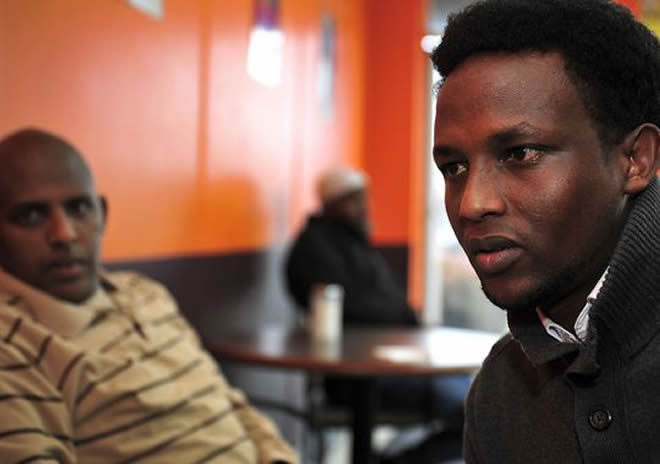
Mohamed Tarabi, right, says new limitations on transferring money to Somalia will make it difficult for his mother and 13 siblings to pay for basic necessities. After living eight years in a refugee camp before moving to Nashville almost two years ago, Tarabi, 25, had grown accustomed to sending money until recent banking changes. (Photo: Jae S. Lee / The Tennessean)
Tarabi first read rumblings of money transfer limitations on Facebook, then learned more at Amal Express, one of a few money transfer operations along Murfreesboro Pike in South Nashville. The owner there, Farhan Abdi, said he’s recently been limited to transferring small amounts each day, and that even those could end later this month.
At the root of the problem is the lack of a banking system in Somalia, which has made international transfers a crucial cash lifeline. Oxfam International recently estimated that Somalis abroad send home $1.3 billion each year, helping families and the entire economy.
But scrutiny over whether the money also aids launderers and terrorist groups has steadily reduced the number of U.S. banks willing to assist transfer operators in the wiring process. Nashville hasn’t been immune. In 2001, federal authorities closed one transfer company because of alleged al-Qaida ties and temporarily closed two others that lacked proper licensing.
But the broader hit came in January, when a crucial California bank that assisted with as much as 80 percent of Somali transfers shut down its accounts.
Local Somali leaders said they’d never seen such alarm. Several met with U.S. Rep. Jim Cooper to push for federal involvement. Driven by refugee resettlements, the city’s Somali population probably tops 3,000, and Metro Schools counted 760 students last year who use Somali as their first language.
“This is a lifeline to families back home,” said Abdishakur Mohamed, a refugee resettlement coordinator and himself a refugee who sends money home. “There’s no government to help people. If this is disconnected, they will be in horrible condition.”
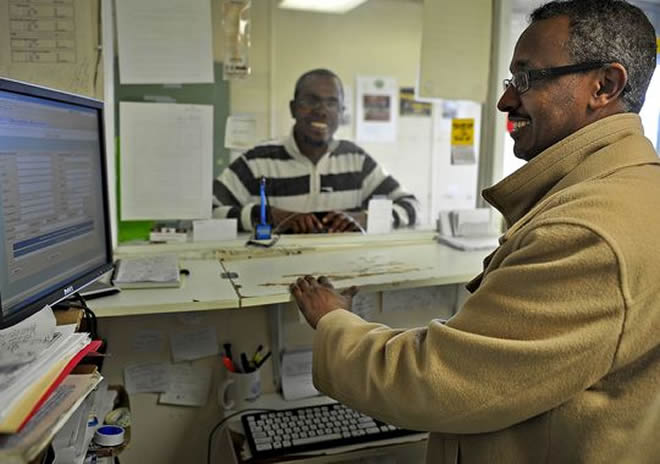
Farhan Abdi, right, helps customer Abdirizak Alas send money overseas at Amal Express in Nashville on Tuesday, March 3, 2015. Abdi and other money transfer operators face new severe limitations on sending money to Somalia, where many families depend on assistance from those who have found refuge in Nashville and across the country. (Photo: Jae S. Lee / The Tennessean)
At the moment, two Nashville transfer companies said they’re able to send small amounts, with daily caps.
But a solution to guarantee the lifeline seems elusive, said Scott Paul, Oxfam America senior humanitarian policy adviser.
“What we still don’t have is any assurance that the administration appreciates the gravity of this crisis now,” he said.
Oxfam has pushed for Congress to get involved, either by involving a federal reserve bank that can defend against laundering or by courting other trusted banks. Long term, banking guidelines could be revisited. And Somalia eventually needs its own banking system, he said.
“In a country where little has worked over the past two decades, this is a Somali-built system that has worked,” he said. “It’s not perfect. At the very least, it is a system that both has social accountability to its consumers and legal accountability.”
In the meantime, local Somalis worry. Truck driver Abdisalan Obsiye, 35, said he needs to provide for his three children who remain in Uganda.
“I’m the only breadwinner for them,” he said. “Maybe there will be a solution. In the meantime, I don’t have a plan B.”
How Somali money transfers work
Consumer: To send $100 to Somalia typically costs $5. The transaction is vetted in several ways, including against a known-terrorist list. In as little as 15 minutes, the recipient in Somalia can be notified, and prove identity, to receive the funds.
Behind the scenes: The unseen system is more complicated. Money transfer companies have offices around the world, typically in dangerous or remote places such as Somalia and also in the cities where refugees have resettled. To transfer money from one office to another, the operators require accounts with banks that can wire the money. Risks and scrutiny have steadily reduced the number of banks willing to be involved.













